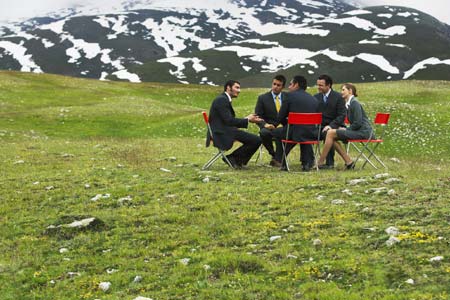 Throughout history, Notaries have been asked to perform peculiar tasks. Centuries ago, Notaries in Europe witnessed the consummation of royal marriages. In 1492, a Notary accompanied Columbus with the job of accounting for any treasures the explorer found on his journey to the New World. While today’s Notaries mainly deal with identification, oaths and document signatures, a few states still empower their Notaries to perform odd jobs. Here’s a look at 5 unusual duties Notaries in certain states can perform.
Throughout history, Notaries have been asked to perform peculiar tasks. Centuries ago, Notaries in Europe witnessed the consummation of royal marriages. In 1492, a Notary accompanied Columbus with the job of accounting for any treasures the explorer found on his journey to the New World. While today’s Notaries mainly deal with identification, oaths and document signatures, a few states still empower their Notaries to perform odd jobs. Here’s a look at 5 unusual duties Notaries in certain states can perform.
1. Call a town meeting (Maine)
In addition to being one of the four states that permit Notaries to perform marriages, did you know that Maine gives its Notaries the power to call town meetings? State law permits Notaries to call meetings if voters in a town submit a written petition, or if the town lacks selectmen who have the authority to call a meeting.
2. Verify a vehicle identification number (Florida)
People applying for a motor vehicle title in Florida must have their car inspected physically by a person authorized to certify a vehicle identification number (VIN), and one option is going to a Notary. The Notary confirms that the VIN on the vehicle matches the VIN recorded on the Vehicle Identification Number And Odometer Verification Form submitted by the vehicle owner.
3. Inspect homeowners association elections (California)
Condominium owners and residents of planned communities usually belong to a homeowners association, or HOA, that sets rules for the appearance and condition of homes within the HOA’s jurisdiction. HOAs are typically governed by a board of elected officials who run the association and make sure its rules are enforced. In California, Notaries are authorized to act as third-party inspectors to help ensure an HOA election is properly performed.
4. Qualify parties to bills in chancery (Tennessee)
In Tennessee, the Chancery Court handles cases involving lawsuits, contract disputes and other civil matters. A “bill” (a petition) submitted to the Chancery Court requiring an oath or affirmation may be sworn to or affirmed before a Tennessee Notary — a type of notarization that goes back as far as 1866 in the state.
5. Certify acts and events (Washington)
In addition to traditional acts such as acknowledgments and jurats, Notaries in Washington state have the power to certify that an event took place or that an act was performed. To make this kind of certification, the event must be described in a document, and the Washington Notary must either witness the event personally or must take the oath or affirmation of a witness personally known to them. However, the Notary may not prepare the document describing the event.
David Thun is the Assistant Managing Editor with the National Notary Association.